
The Untamed Beauty of Dzanga-Ndoki National Park
Dzanga-Ndoki National Park, nestled in the heart of the Central African Republic, offers a rare glimpse into one of Africa's most pristine and untouched wilderness areas. This park is a sanctuary for wildlife enthusiasts, where dense rainforests, flowing rivers, and open clearings reveal a rich tapestry of biodiversity. From the moment you step into Dzanga-Ndoki, you are greeted by the symphony of nature, with the sounds of exotic birds, chattering primates, and the distant calls of forest elephants filling the air. The park is divided into two sections: Dzanga and Ndoki. In the Dzanga sector, you will find the famous Dzanga Bai, a large clearing where hundreds of elephants gather daily to drink and bathe. This unique spectacle is a photographer's dream and a must-see for anyone visiting the park. The Ndoki sector, meanwhile, is known for its dense, unspoiled rainforest, teeming with wildlife such as gorillas, buffaloes, and an array of bird species. Guided tours through the park offer an opportunity to explore these areas in depth, providing insights into the local ecology and the vital conservation efforts in place. Beyond its natural wonders, Dzanga-Ndoki is also home to the indigenous Ba'Aka people, whose traditional way of life is intricately tied to the forest. Visitors have the chance to learn about their culture, participate in traditional hunts, and understand their deep connection to the land. This cultural immersion adds an enriching layer to your visit, making Dzanga-Ndoki not just a destination for wildlife, but a journey into the heart of African heritage.
Local tips in Dzanga-Ndoki National Park
- Visit during the dry season (December to March) for the best wildlife viewing opportunities.
- Hire a local guide to enhance your experience and ensure you see the best spots.
- Bring insect repellent and light, long-sleeved clothing to protect against insects.
- Respect the local Ba'Aka culture and participate in their activities to fully appreciate their way of life.
- Carry sufficient water and snacks, as facilities within the park are limited.
- Ensure your travel documents and permits are in order before visiting, as the park is in a remote location.
The Untamed Beauty of Dzanga-Ndoki National Park
Dzanga-Ndoki National Park, nestled in the heart of the Central African Republic, offers a rare glimpse into one of Africa's most pristine and untouched wilderness areas. This park is a sanctuary for wildlife enthusiasts, where dense rainforests, flowing rivers, and open clearings reveal a rich tapestry of biodiversity. From the moment you step into Dzanga-Ndoki, you are greeted by the symphony of nature, with the sounds of exotic birds, chattering primates, and the distant calls of forest elephants filling the air. The park is divided into two sections: Dzanga and Ndoki. In the Dzanga sector, you will find the famous Dzanga Bai, a large clearing where hundreds of elephants gather daily to drink and bathe. This unique spectacle is a photographer's dream and a must-see for anyone visiting the park. The Ndoki sector, meanwhile, is known for its dense, unspoiled rainforest, teeming with wildlife such as gorillas, buffaloes, and an array of bird species. Guided tours through the park offer an opportunity to explore these areas in depth, providing insights into the local ecology and the vital conservation efforts in place. Beyond its natural wonders, Dzanga-Ndoki is also home to the indigenous Ba'Aka people, whose traditional way of life is intricately tied to the forest. Visitors have the chance to learn about their culture, participate in traditional hunts, and understand their deep connection to the land. This cultural immersion adds an enriching layer to your visit, making Dzanga-Ndoki not just a destination for wildlife, but a journey into the heart of African heritage.
When is the best time to go to Dzanga-Ndoki National Park?
Iconic landmarks you can’t miss
Notre-Dame of Bangui Cathedral
Explore the stunning Notre-Dame of Bangui Cathedral, a symbol of resilience and cultural heritage in the heart of Central African Republic.
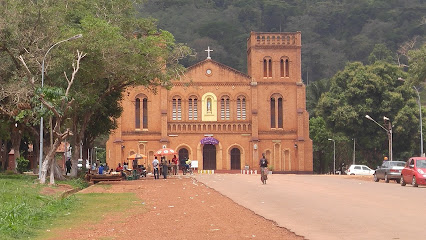
Chinko Nature Reserve
Discover untamed Africa in Chinko Nature Reserve: a haven for wildlife, adventure, and conservation in the heart of the Central African Republic.
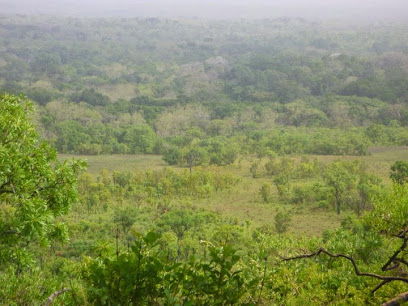
Chutes de Boali
Explore the breathtaking beauty of Chutes de Boali, a stunning waterfall near Boali in the Central African Republic, perfect for nature lovers and adventurers.
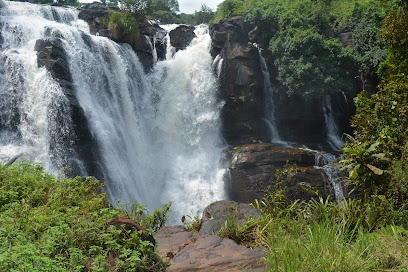
Manovo-Gounda-Saint Floris National Park
Explore the untamed beauty of Central Africa's Manovo-Gounda St. Floris National Park, a UNESCO site teeming with diverse wildlife and stunning landscapes.
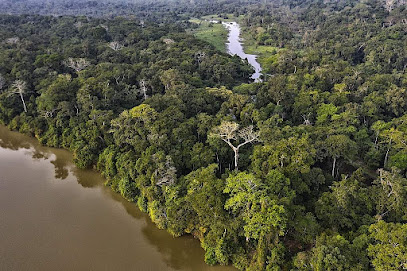
Boganda National Museum
Explore the rich cultural heritage of the Central African Republic at Boganda National Museum, a must-visit destination in Bangui.
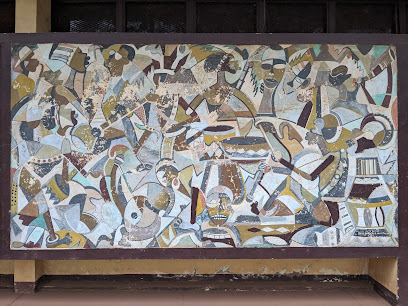
Dzanga-Sangha National Park
Discover the rich biodiversity and stunning landscapes of Dzanga-Sangha National Park, a true gem for wildlife enthusiasts and nature lovers.
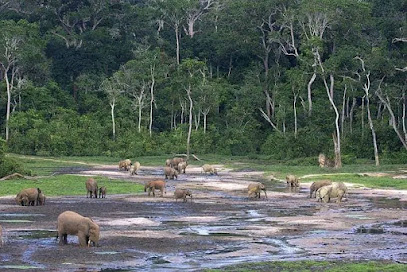
Dzanga Sangha Park HQ
Explore the breathtaking Dzanga Sangha Park HQ, a wildlife haven in Central African Republic, perfect for eco-tourism and unforgettable nature experiences.

Unmissable attractions to see
Notre-Dame of Bangui Cathedral
Explore the architectural splendor and spiritual serenity of Notre-Dame of Bangui Cathedral, a cultural gem in the heart of Central African Republic.
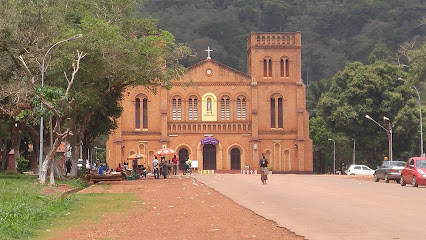
Chutes de Boali
Experience the breathtaking beauty of Chutes de Boali, a stunning waterfall in Central African Republic, perfect for nature lovers and adventure seekers.
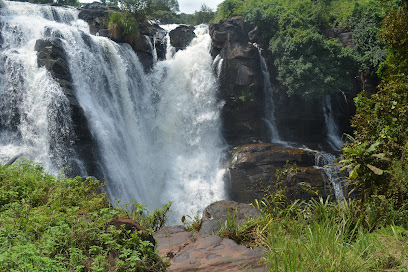
Dzanga-Sangha National Park
Embark on an unforgettable journey through Dzanga-Sangha National Park, a sanctuary of biodiversity and stunning landscapes in Central Africa.

Bai Hoku Gorilla Camp
Experience the beauty of the Dzanga-Sangha Nature Reserve at Bai Hoku Gorilla Camp, where wildlife adventures meet eco-friendly hospitality.

Санга
Discover the breathtaking beauty of Sanaga National Forest in Congo, a paradise for nature lovers and adventure seekers.

VILLAGE NDJALOBEKOÉ
Explore the serene beauty and rich cultural heritage of Village Ndjalobekoué, a hidden gem in Cameroon perfect for adventurous travelers seeking authentic experiences.
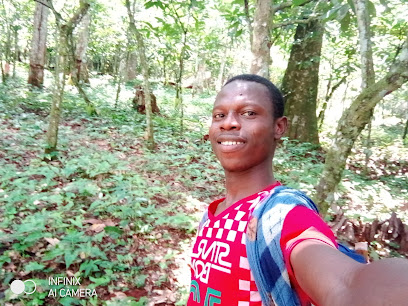
Village NDJALOBEKOÉ
Experience the authenticity of Cameroon in Village NDJALOBEKOÉ, a hidden gem rich in culture, tradition, and stunning natural beauty.

Nouabalé-Ndoki National Park
Explore the pristine wilderness of Nouabalé-Ndoki National Park, a UNESCO World Heritage site, rich in biodiversity and stunning landscapes.

Essential places to dine
Relais des Chasses
Experience authentic Central African cuisine at Relais des Chasses, a cozy restaurant and bed & breakfast in Bangui.

5 FOURCHETTES
Experience the vibrant flavors of Bangui at 5 Fourchettes - where local cuisine meets warm hospitality.
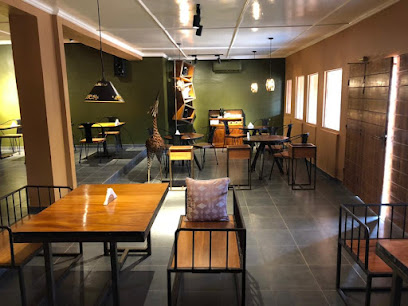
Cafrina
Experience authentic Central African flavors at Cafrina in Bangui—where local ingredients meet delightful hospitality.
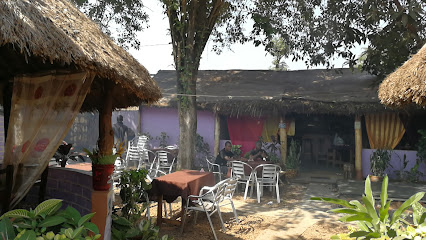
Restaurant Le M'
Experience authentic Central African cuisine at Restaurant Le M', where local flavors meet warm hospitality in the heart of Bangui.
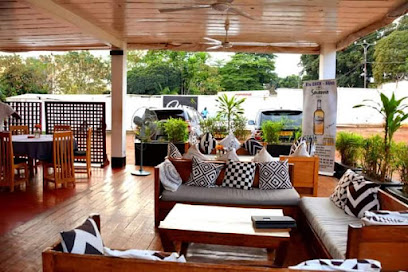
SANGO
Experience authentic Central African flavors at SANGO, where delicious cuisine meets warm hospitality in the heart of Bangui.
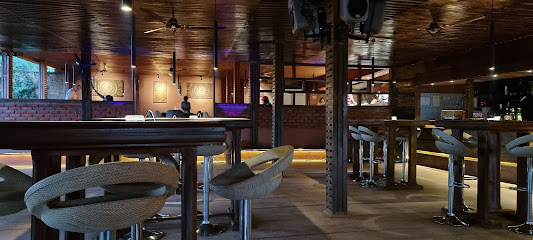
Le Casablanca
Discover Le Casablanca: A vibrant outdoor restaurant in Bangui offering delicious local cuisine amidst lush park surroundings.
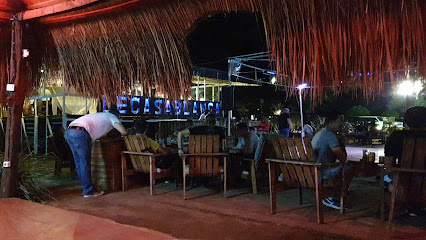
Restaurant Senegalais Terranga
Experience authentic African cuisine at Restaurant Senegalais Terranga in Bangui – where every dish tells a story.
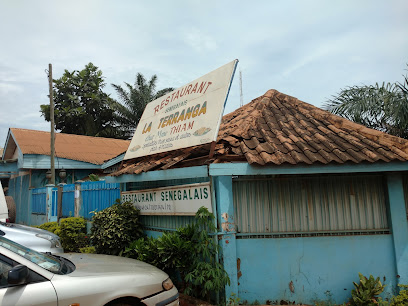
Cuisine A
Discover the rich flavors of Central Africa at Cuisine A in Bangui—where every dish tells a story.

L'Escale
Discover authentic Central African cuisine at L'Escale, a charming restaurant in Bangui offering delicious local dishes and warm hospitality.
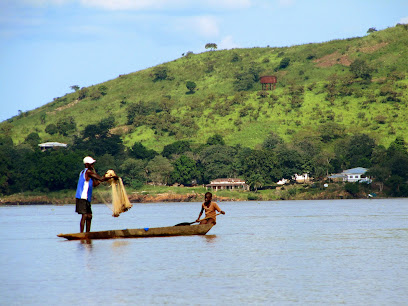
Moodbucks
Experience the vibrant flavors of Central Africa at Moodbucks in Bangui - where every meal is a celebration.
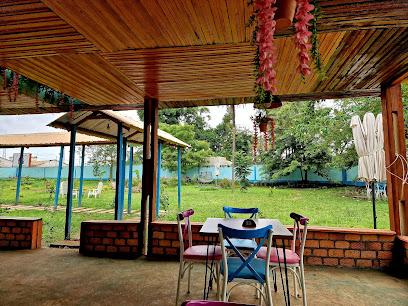
Spicy Panda
Discover the vibrant taste of China at Spicy Panda in Bangui – where authentic flavors meet warm hospitality.
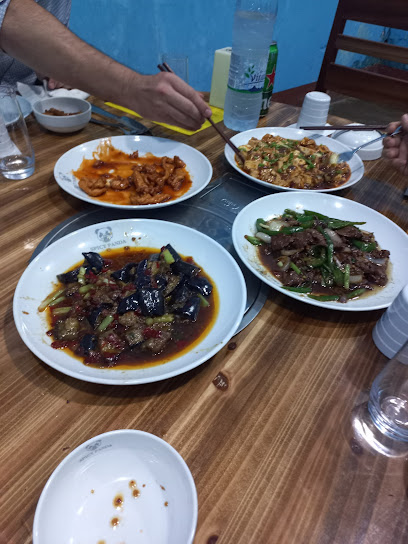
Cielo Restaurant
Experience authentic Central African flavors at Cielo Restaurant in Bangui - where tradition meets taste in every bite.

Dzanga-Ndoki National Park
Explore Dzanga-Ndoki National Park: A Biodiversity Haven in Central Africa Offering Unmatched Wildlife Experiences.
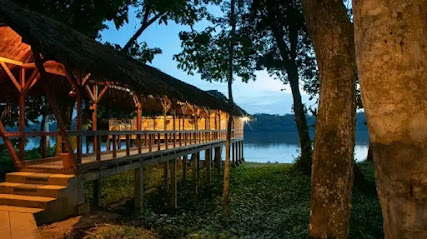
LE SAFARI GRILL
Experience authentic Central African cuisine at Le Safari Grill in Bangui - where local flavors meet vibrant atmosphere.
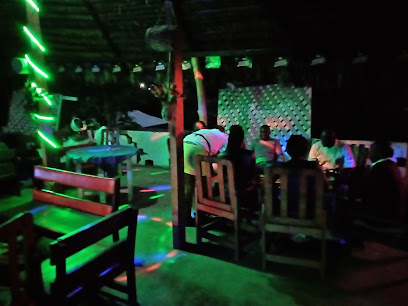
Gé, le Café
Discover authentic Central African cuisine at Gé, le Café in Bangui - where every meal is an experience!
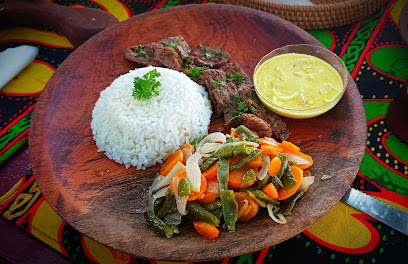
Markets, malls and hidden boutiques
PHARMACIE YOKADOUMA
Explore top-notch health care at Pharmacie Yokadouma, your trusted pharmacy in the heart of Cameroon offering quality products and expert advice.
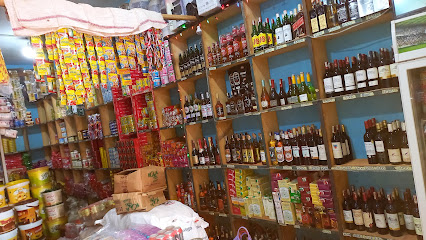
Doli Lodge
Discover the enchanting Doli Lodge in Bayanga, where comfort meets wildlife in a stunning natural setting, perfect for your next adventure.

Alimentation Oiseaux Volants
Discover the vibrant shopping culture at Alimentation Oiseaux Volants in Yokadouma, featuring local crafts, delicious treats, and a unique blend of experiences.
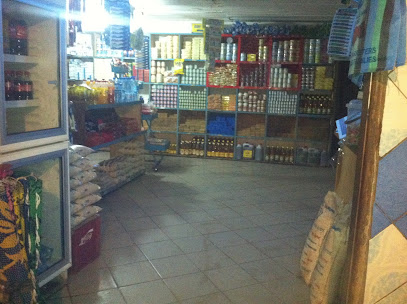
Libongo Factory
Experience the artistry of lumbercraft at Libongo Factory in Cameroon, where tradition meets sustainability in woodworking.
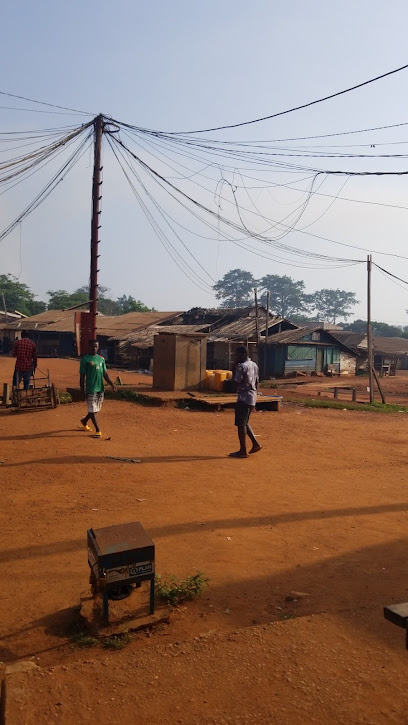
Ndara Ti Beafrika
Discover the heart of Central African craftsmanship at Ndara Ti Beafrika, your go-to gift shop in Bangui for unique souvenirs and local artistry.
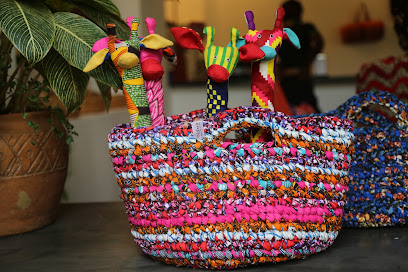
Marché B
Experience the lively charm of Marché B in Yokadouma, a shopping mall that showcases authentic Cameroonian culture and vibrant local commerce.
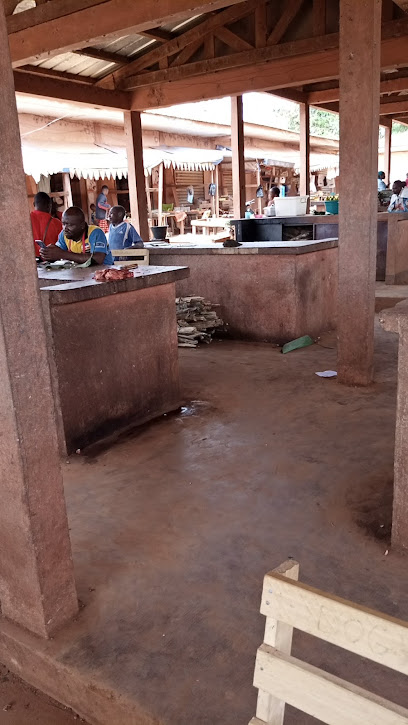
Dzanga-Sangha National Park
Discover the stunning landscapes and diverse wildlife of Dzanga-Sangha National Park, a hidden gem in the heart of Central Africa.
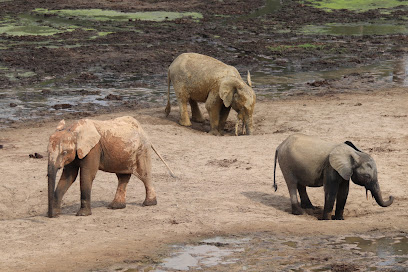
PHARMACIE DU SECOURS
Pharmacie du Secours: Your trusted pharmacy in Yokadouma, providing essential health services and products for travelers and locals alike.
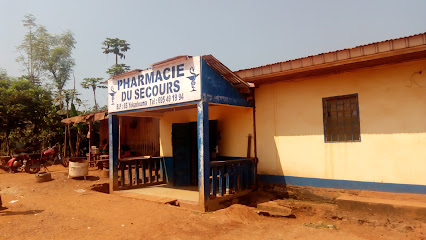
Abdoulkarim Adjit
Experience the lively atmosphere and rich culture at Abdoulkarim Adjit Market, a vibrant hub in Yokadouma, Cameroon.

Dzanga-Ndoki National Park
Explore the untouched wilderness of Dzanga-Ndoki National Park, a sanctuary of biodiversity, captivating landscapes, and unique wildlife encounters.
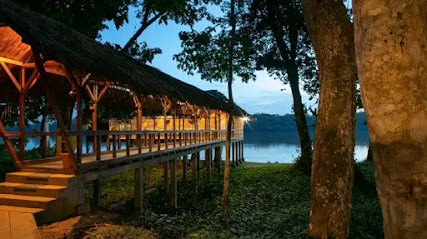
Bsp Center
Explore Bsp Center in Yokadouma for a wide range of electronics and gadgets, perfect for tech enthusiasts visiting Cameroon.

Boutique vip
Experience the essence of Cameroonian culture at Boutique VIP in Yokadouma, the perfect shopping destination for unique local products.
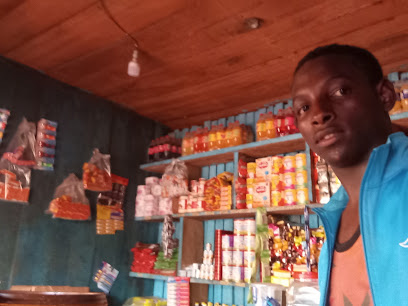
Marche
Explore Marche Market in Kabo for a vibrant mix of local produce, crafts, and the rich culture of Congo-Brazzaville.

Djonny Alimentation
Experience the local charm of Djonny Alimentation in Babali, Congo-Brazzaville, where culture meets convenience in a vibrant general store.

Mahamat ETS
Discover authentic local flavors at Mahamat ETS, a vibrant grocery store in Babali, Congo-Brazzaville, where culture and community come together.

Essential bars & hidden hideouts
Sewa Bar
Discover the vibrant nightlife of Bangui at Sewa Bar, where refreshing drinks and lively music create unforgettable experiences.
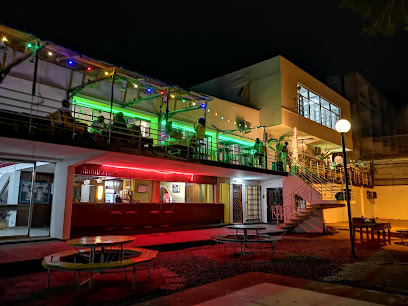
Le Balafon
Experience the vibrant nightlife at Le Balafon, a popular bar in Bangui offering local drinks and a lively atmosphere perfect for tourists.
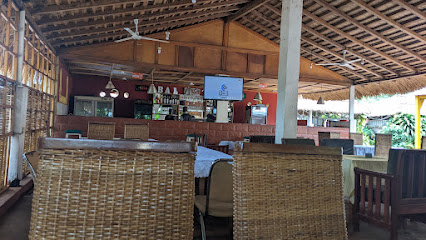
Sangha Lodge
Discover the perfect blend of comfort and nature at Sangha Lodge in Djomo, a serene hotel in the heart of Central Africa.
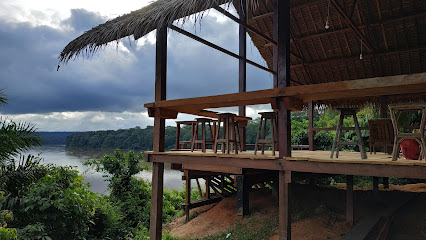
Doli Lodge
Experience the natural beauty and wildlife of Dzanga-Sangha National Park at Doli Lodge, where adventure meets comfort.

La Verdure
Experience the vibrant nightlife at La Verdure, a must-visit bar in the heart of Bangui offering local drinks and a lively atmosphere.
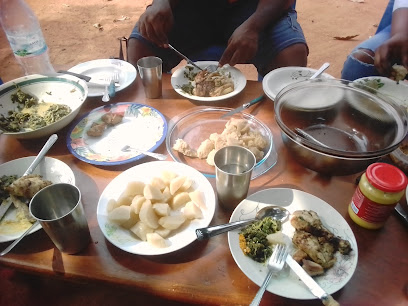
Chez Sophie
Discover the essence of African cuisine at Chez Sophie in Anikou, where traditional recipes and warm hospitality combine for an unforgettable dining experience.
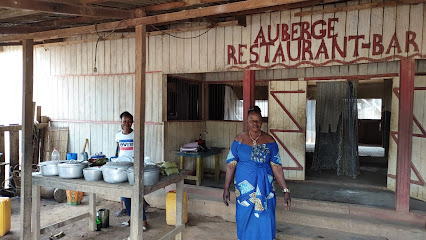
David és Bende Pho Falója
Experience the authentic taste of Vietnam at David és Bende Pho Falója in Yanga, Cameroon, where every bowl of Pho tells a story.

Dzanga-Sangha National Park
Discover the wonders of Dzanga-Sangha National Park, a biodiversity hotspot in Central Africa, where wildlife encounters and eco-adventures await.
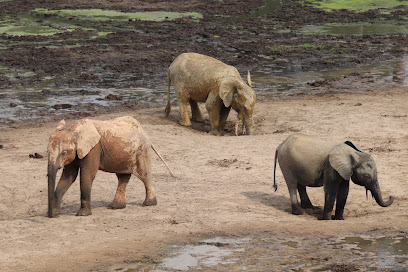
Carrefour ngatto bar
Experience the vibrant nightlife and local flavors at Carrefour Ngatto Bar in Yokadouma, Cameroon.
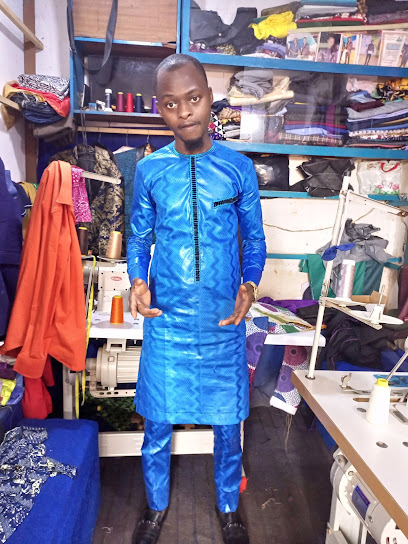
Restaurant La Congo
Discover the authentic flavors of Congo at Restaurant La Congo, where local cuisine meets a vibrant dining experience in Thanri.
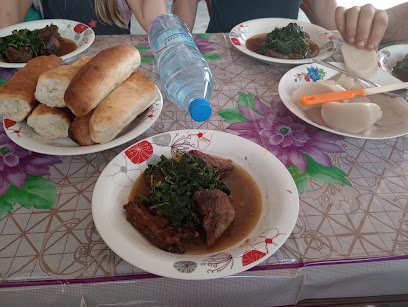
Bar Challenge
Experience the authentic taste of Cameroon at Bar Challenge in Yokadouma, where vibrant flavors meet local hospitality.

WASSA
Experience the vibrant nightlife at WASSA, a lively bar in Bangui serving a delightful mix of local and international beverages.

Bar Ange
Experience the vibrant nightlife and local culture at Bar Ange in Babali, Congo, where drinks and music create unforgettable memories.

5e dimension
Experience the vibrant nightlife at 5E Dimension, Yokadouma's bar known for its lively atmosphere and diverse beverage selection.

Local Phrases about Dzanga-Ndoki National Park
-
- HelloMbolo
[m-boh-loh] - GoodbyeKwaheri
[kwa-heh-ree] - YesEe
[eh] - NoTey
[teh-ee] - Please/You're welcomeMakandé
[mah-kan-deh] - Thank youSango
[san-go] - Excuse me/SorryYekeni
[ye-keh-nee] - How are you?O kwa lé?
[oh kwa lay] - Fine. And you?Eh, moina
[eh, moh-ee-nah] - Do you speak English?O yo kokoma mokênglisé?
[oh yo koh-koh-mah moh-ken-glee-seh] - I don't understandMôko môwa
[moh-koh moh-wah]
- HelloMbolo
-
- I'd like to see the menu, pleaseYêkô môka môsi, môla
[yeh-koh moh-kah moh-see, moh-lah] - I don't eat meatMôko môwa kôsa môkôndja
[moh-koh moh-wah koh-sah moh-kohn-jah] - Cheers!Yango!
[yahng-goh] - I would like to pay, pleaseYêkô môka môbêla, môla
[yeh-koh moh-kah moh-beh-lah, moh-lah]
- I'd like to see the menu, pleaseYêkô môka môsi, môla
-
- Help!Makandé!
[mah-kan-deh] - Go away!Ko kala!
[koh kah-lah] - Call the Police!Kôlîsé!
[koh-lee-seh] - Call a doctor!Kômbéla yêmbô!
[kohm-bay-lah yehm-boh] - I'm lostMôko môwa môlêlê
[moh-koh moh-wah moh-lay-lay] - I'm illMôko môwa môlêmbi
[moh-koh moh-wah moh-laym-bee]
- Help!Makandé!
-
- I'd like to buy...Yêkô môka kôbanga...
[yeh-koh moh-kah koh-bahn-gah] - I'm just lookingMôko môwa môkêla
[moh-koh moh-wah moh-kay-lah] - How much is it?Môkôndja na yê?
[moh-kohn-jah nah yeh] - That's too expensiveMôkôndja mpôkôlé
[moh-kohn-jah m-poh-koh-lay] - Can you lower the price?Oyo nge yékéléla môkôndja?
[oh-yoh ngeh yeh-kay-lay-lah moh-kohn-jah]
- I'd like to buy...Yêkô môka kôbanga...
-
- What time is it?Kôsa môlêlê?
[koh-sah moh-lay-lay] - It's one o'clockEka nde tô
[eh-kah n-deh toh] - Half past (10)Kôsa (10)
[koh-sah (10)] - MorningMéja
[may-jah] - AfternoonNyiya
[nyee-yah] - EveningLêkô
[lay-koh] - YesterdayMôyô
[moh-yoh] - TodayKôlô
[koh-loh] - TomorrowYôkô
[yoh-koh] - 1Nde
[n-deh] - 2Ncôcô
[n-choh-choh] - 3Ntâto
[n-tah-toh] - 4Nya mîa
[nyah mee-ah] - 5Nya tàndé
[nyah tahn-deh] - 6Nya pângala
[nyah pahn-gah-lah] - 7Nya môka
[nyah moh-kah] - 8Nya sê
[nyah say] - 9Nya kôsa
[nyah koh-sah] - 10Nya mâya
[nyah mah-yah]
- What time is it?Kôsa môlêlê?
-
- Where's a/the...?Kôsa nde...
[koh-sah n-deh] - What's the address?Kôsa ndé môkôla?
[koh-sah n-deh moh-koh-lah] - Can you show me (on the map)?Oyo nge yébala ngôlîko?
[oh-yoh ngeh yeh-bah-lah n-goh-lee-koh] - When's the next (bus)?Kôsa ndê kômôndja (bus)?
[koh-sah n-day koh-mohn-jah bus] - A ticket (to ....)Nkêmbako (na ....)
[n-kem-bah-koh nah]
- Where's a/the...?Kôsa nde...
History of Dzanga-Ndoki National Park
-
Dzanga-Ndoki National Park was officially established in 1990 as part of the Dzanga-Sangha Complex of Protected Areas. The park was created to preserve the unique biodiversity of the region, which includes a variety of ecosystems such as dense rainforests, swamps, and savannas. The park covers an area of approximately 1,220 square kilometers and is a critical habitat for numerous endangered species.
-
The BaAka people, also known as Pygmies, are indigenous to the Dzanga-Ndoki area and have lived in harmony with the forest for centuries. Their traditional knowledge of the forest and its flora and fauna has been invaluable in conservation efforts. The BaAka are skilled hunters and gatherers, and their cultural practices include music, dance, and storytelling, all deeply connected to the natural environment.
-
Over the years, Dzanga-Ndoki National Park has benefited from various international collaborations aimed at conservation. Organizations such as the World Wildlife Fund (WWF) and the Wildlife Conservation Society (WCS) have been instrumental in funding and supporting conservation projects. These efforts include anti-poaching initiatives, research on wildlife populations, and community-based conservation programs.
-
One of the most iconic features of Dzanga-Ndoki National Park is the Dzanga Bai, a large forest clearing that attracts a variety of wildlife. Elephants, gorillas, and other animals gather here to drink the mineral-rich water and forage for food. The Bai provides a unique opportunity for researchers and visitors to observe wildlife behavior in a relatively open setting, making it a focal point for scientific study and ecotourism.
-
Dzanga-Ndoki National Park has been a hotspot for scientific research. Numerous studies have been conducted on its diverse ecosystems and the species that inhabit them. Significant discoveries include new species of plants and insects, as well as important insights into the behavior and social structures of forest elephants and western lowland gorillas. These findings have contributed to a greater understanding of tropical rainforest ecosystems.
-
Despite its protected status, Dzanga-Ndoki National Park faces numerous challenges and threats. Illegal logging, poaching, and encroachment by local communities pose significant risks to the park's biodiversity. Efforts to combat these threats include increased patrolling, community engagement, and sustainable development programs aimed at providing alternative livelihoods for local populations.
-
Ecotourism has become an important aspect of Dzanga-Ndoki National Park's conservation strategy. Carefully managed tourism activities provide economic benefits to local communities and raise awareness about the importance of preserving natural habitats. Visitors can participate in guided tours, wildlife tracking, and cultural exchanges with the BaAka people, all of which contribute to the park's sustainability.
Dzanga-Ndoki National Park Essentials
-
Dzanga-Ndoki National Park is located in the southwestern part of the Central African Republic. The closest major airport is Bangui M'Poko International Airport (BGF) in the capital city of Bangui. From Bangui, you can take a domestic flight to Bayanga, the nearest town to the park, which is about 10 kilometers away. Alternatively, you can arrange for a 4x4 vehicle transfer from Bangui to Bayanga, which takes approximately 10-12 hours due to road conditions.
-
Within Dzanga-Ndoki National Park, transportation options are limited. The most common way to get around is by guided tours, which often include transportation in 4x4 vehicles suitable for the rough terrain. Walking safaris are also popular and provide a more intimate experience with the local wildlife. It's advisable to arrange all transportation through reputable tour operators.
-
The official currency is the Central African CFA Franc (XAF). Credit cards are not widely accepted in the area, so it is essential to carry enough cash for your entire trip. ATMs are scarce, and it is recommended to withdraw cash in Bangui before heading to Dzanga-Ndoki National Park. Some lodges and tour operators may accept Euros or US Dollars, but this should be confirmed in advance.
-
While Dzanga-Ndoki National Park is relatively safe, the Central African Republic has areas with high crime rates, especially in urban centers like Bangui. It's crucial to stay updated on the current political situation and avoid traveling at night. Stick to guided tours and follow the advice of your tour operator. Always keep your belongings secure and do not display valuable items publicly.
-
In case of an emergency, the first point of contact should be your tour operator or lodge, as they are equipped to handle most situations. The emergency number for police assistance is 117, and for medical emergencies, dial 118. It is highly recommended to have comprehensive travel insurance that covers medical evacuation. The closest medical facilities are in Bangui, so for severe medical issues, an evacuation may be necessary.
-
Fashion: Do wear light, breathable clothing suitable for a tropical climate, and sturdy shoes for walking. Don’t wear flashy or revealing clothing. Religion: Do respect local customs and traditions. Avoid discussing politics or religion. Public Transport: Do use arranged transport through your tour operator. Don’t rely on public transport, as it is unreliable and can be unsafe. Greetings: Do greet locals with a handshake and a smile. Don’t ignore local customs and etiquette. Eating & Drinking: Do try local dishes and accept food graciously. Don’t drink tap water; always opt for bottled or purified water.
-
To experience Dzanga-Ndoki National Park like a local, engage with the indigenous Ba'Aka people, who offer valuable insights into the forest's ecology and wildlife. Participate in a net-hunting expedition with the Ba'Aka for a unique cultural experience. Visit the Dzanga Bai, a forest clearing frequented by forest elephants, and take part in guided gorilla tracking excursions for an unforgettable wildlife encounter.
Nearby Cities to Dzanga-Ndoki National Park
-
Things To Do in Bertoua
-
Things To Do in Bitam
-
Things To Do in Yaoundé
-
Things To Do in Ebolowa
-
Things To Do in Bafia
-
Things To Do in Ngaoundéré
-
Things To Do in Edea
-
Things To Do in Foumban
-
Things To Do in Kribi
-
Things To Do in Bafoussam
-
Things To Do in Douala
-
Things To Do in Mbini
-
Things To Do in Mbouda
-
Things To Do in Nkongsamba
-
Things To Do in Lambaréné






